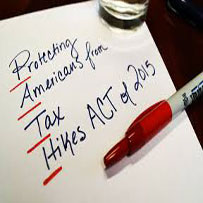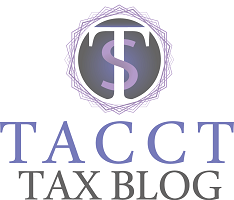
President Obama signed the Protecting Americans from Tax Hikes Act of 2015 (“PATH Act”) on December 18, 2015, after both houses of Congress voted to approve the budget measure and comprehensive spending bill. The PATH Act extends a number of important tax breaks, and makes many of them permanent.
Even better news, tax season will open on time January 19, 2016. There’s no tiered opening season like last year. There was some concern about what might happen if Congress did not sign off on all of the tax extenders. Fortunately, Congress eventually approved the tax extenders package making it possible for all taxpayers to start filing at the same time. See some of the extenders below.
Permanent Tax Breaks
- The enhanced Child Tax Credit;
- The enhanced American Opportunity Tax Credit;
- The enhanced Earned Income Tax Credit;
- The deduction for certain expenses of elementary and secondary school teachers;
- The deduction of state and local general sales taxes;
- The Research & Development credit;
- Increased expensing limitations and treatment of certain real property as Section 179 property;
- The exclusion of 100% of gain on certain small business stock;
- Reduction in S corporation recognition period for built-in gains tax;
- Parity for exclusion from income for employer-provided mass transit and parking benefits;
- The special rule for contributions of capital gain real property made for conservation purposes;
- Tax-free distributions from individual retirement plans for charitable purposes;
- The charitable deduction for contributions of food inventory;
- The tax treatment of certain payments to controlling exempt organizations;
- Basis adjustment to stock of S corporations making charitable contributions of property;
- The employer wage credit for employees who are active duty members of the uniformed services; 15-year straight-line cost recovery for qualified leasehold improvements, qualified restaurant buildings and improvements, and qualified retail improvements;
- The treatment of certain dividends of regulated investment companies;
- The Subpart F exception for active financing income;
- The minimum low-income housing tax credit rates for non-federally subsidized buildings;
- The military housing allowance exclusion for determining whether a tenant in certain counties is low-income; and,
- Regulated investment company qualified investment entity treatment under the Foreign Investment in Real Property Tax Act.
Extended through 2016
- Modification of the exclusion of mortgage debt discharge;
- Mortgage insurance premiums treated as qualified residence interest;
- The above-the-line deduction for qualified tuition and related expenses; and,
- Over a dozen incentives for energy production and conservation.



